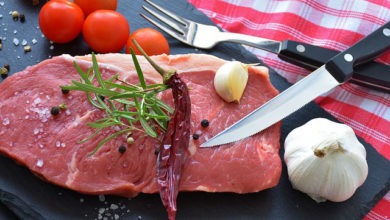DON’T TRUST A BLOGGER WITH YOUR LIFE

Blogs
I read an article a while back that said there were over 152 million blogs on the internet. The article was a couple of years old- by now there are probably shitloads more. Mum blogs, dad blogs, food blogs, fashion blogs, beauty blogs, personal blogs, whatever-the-hell-kind-of-blog this one is and no doubt many more including the ever popular health blog.
Health bloggers are a varied bunch, from green smoothie enthusiasts to vegetarian foodies and fitness bloggers and many more- there are many different pages out there. There are some truly awesome blogs written by doctors, surgeons and other science minded folk that provide a repository of accessible information and debunk common misconceptions or widely circulated false information. There are also great people living with medical conditions who blog to raise awareness and educate and others who share healthy lifestyle tips and recipes that are great resources. Blogger Carly Findlay is an excellent example and has written about this very thing!
Then there is the other, all too prevalent, kind. Quacks and conspirators endorsing all kinds of often wacky views- some of which are down right dangerous.
Bloggers Don’t Need a Qualification
It’s true. Anyone with internet access can start a blog. You don’t need anything special. No training, no study, no skills. I’ve seen some blogs out there that prove you don’t even need a basic grasp of grammar to spring into existence and start dishing out advice to all and sundry.
Be Wary of Bloggers Giving Nutritional Advice
Not all bloggers are qualified nutritionists. Shocking, I know. But something else you should know is that not all nutritionists are dietitians, though some dietitians may also call themselves nutritionists. Confused yet? This is from the Dietitians Association of Australia:
“In Australia there is a distinction made between dietitians and other occupations in the nutrition and food science field, including that of nutritionist.
The key difference between a dietitian and a nutritionist is that, in addition to or as part of their qualification in human nutrition, a dietitian has undertaken a course of study that included substantial theory and supervised and assessed professional practice in clinical nutrition, medical nutrition therapy and food service management.
Therefore, in Australia, all dietitians are considered to be nutritionists however, nutritionists without a dietetics qualification cannot take on the specialised role of a dietitian.
There is no industry specific assessing authority that assesses the qualifications of nutritionists who are not dietitians.”
What I’m getting at here is that someone can do a short online course run by Dodgy Brothers Training Academy or it’s equivalent, then call themselves a nutritionist and blog away. Many health bloggers and people with nutrition studies behind them give sensible advice- many others advise very strict diets that may not be suitable for everyone. Get proper, qualified advice if you need it!
Bloggers Preaching Special Diets
If you are reading a blog about someone’s “journey” fighting an illness or disorder without conventional medicine, chances are they will be trying to sell you on a number of things that usually include a special diet plan. They may not be directly profiting if you take them up- but make no mistake- they are still selling you something.
My theory is that more people on board for whatever unproven treatment you choose makes it seem or feel more legitimate and reasonable. Case in point- the recently deceased “wellness” guru, Jess Ainscough a.k.a. The Wellness Warrior, espoused Gerson Therapy to treat her rare form of cancer. (Gerson Therapy consists of lots of a vegan diet, organic fruit juice and organic coffee enemas.) Jess wasn’t selling Gerson (though she was actually selling a bunch of other stuff like books and jewelry) but she was still selling it in that she wrote about it as if it were an answer. Despite detailing months of illness and not being able to get out of bed, Ainscough and her family still describe her life as thriving with cancer. Jess Ainscough’s own mum, Sharyn, reportedly refused conventional treatment when diagnosed with breast cancer and instead underwent Gerson with her daughter. She died less than 2 years before Jess did. Surgeon, scientist and blogger David Gorski reminds us that “Jess Ainscough was also a victim of the very pseudoscience that she promoted” and while she certainly “sold” these unproven therapies- she paid a very high price.
Bloggers At Odds With Science
If you’re reading a health blog, it never, ever hurts to check where their info is coming from. If they reference, say, their own articles and “evidence” you should be very wary. If what they’re saying is in contradiction to what major health authorities recommend, your alarm bells should ring, no matter how slick and professional their website looks. If they don’t reference their sources of information at all and haven’t got any credentials up there, jump over to these awesome LolCats pics that will give you the same amount of reliable health advice but come with the bonus cute factor. It gets confusing when these websites or their articles are authored by people who have “Dr” before their name, but there are a few questions you can ask yourself. What kind of doctor are they? There is a doctor out there who has written loads on vaccines- she claims that vaccines are what really cause “Shaken Baby Syndrome”, among other things. This “doctor” is Viera Scheibner has a PhD. She’s a retired micropaleontologist. Not a medical doctor. And her views contradict that of every major health authority in the world. Yet her articles and references to her work appear on blogs all over the place.
When Bloggers Make Worrying Claims
Check what they are saying against what major health organisations recommend. The recent controversy over chef Pete Evans, health blogger Charlotte Carr and her naturopath, Helen Padarin, releasing a cookbook containing a home made baby formula recipe is a good example. Health officials warned that the formula recipe contain inadequate nutrition and potentially toxic levels of vitamin A and could result in the death of a baby. The book has been dropped by publishers but will now be self-published as an e-book. I used to think Pete Evans was okay. A bit eccentric, but if he wanted to “activate” his nuts, who was I to stop him? These days, I take all he says with a grain of salt. Actually, I don’t see much of what he says since I was banned from his facebook page when I questioned his anti-fluoride views. My point is that Carr, Evans & Pandarin endorsing a baby formula made at home and based on bone broth and liver is not endorsed by any health authority. The World Health Organisation recommends breast milk from mum, expressed breast milk, donated breast milk or commercial infant formula in that order. Home made liver/broth concoctions are not cited anywhere. When a health blogger, a T.V. chef and a naturopath apparently know more than the WHO, you need to ask yourself who seems more credible here.
When Bloggers Get Scary
If Evans and co aren’t worrying enough- there are bloggers out there endorsing some really horrifying stuff like bleach enemas as a “cure” for autism, black salve as a “cure” for skin cancer, homeopathic vaccinations and more unproven therapies that don’t do what they are supposed to and can be extremely dangerous.
This is by no means an exhaustive list. There is some dangerous rubbish out there in blog land. Interestingly, many of these quack blogs include lengthy disclaimers about how the information contained in them is not to be misconstrued as medical advice etc. Very telling, I think.
If you aren’t feeling well, by all means, google away. But take what you come up with to the doctor. Don’t be surprised if she laughs at your self-diagnosed armpit cancer, though! Likewise, if the doctor hands you a less than excellent diagnosis and you do a bit of online research- well and good. But please, don’t rely on what a blogger thinks is best. Look at real research and studies if you’re confident interpreting them. See a specialist. See two. But don’t put your life on the line based on what some stranger online says, no matter how big their following is or how professional their website.



I was wondering how long it would take for this article to get to the Paleo bashing. How tiresome. If the alternative is absolute faith in a growing number of GP’s who will consult Google right in front of you, I’ll take my bone broth thanks.
Hi Mel- I actually wrote this article and I’m sorry you didn’t enjoy it. However I must point out that there was no “paleo bashing” In fact- the word “paleo” does not even appear in the article. I mentioned Pete Evans and Co marketing a dangerous recipe for babies and his stance on fluoride. Nothing about paleo, nothing about bone broth (which I regularly make) as a part of a healthy diet. Hope that clarifies things.
Since the book you’re discussing was a Paleo book, it’s clear that’s where it was directed, no matter how careful you were to never mention it.